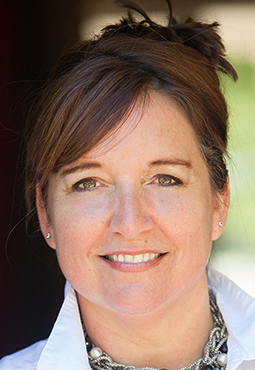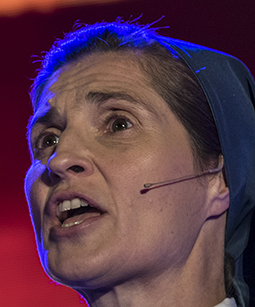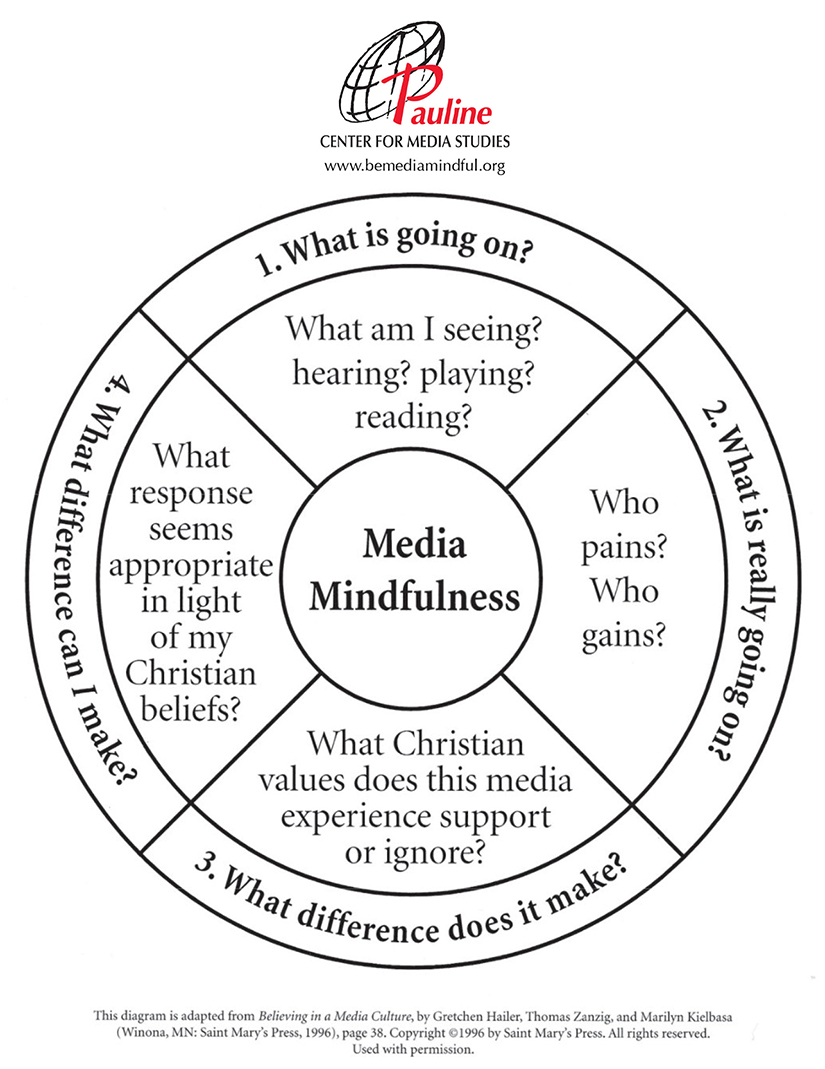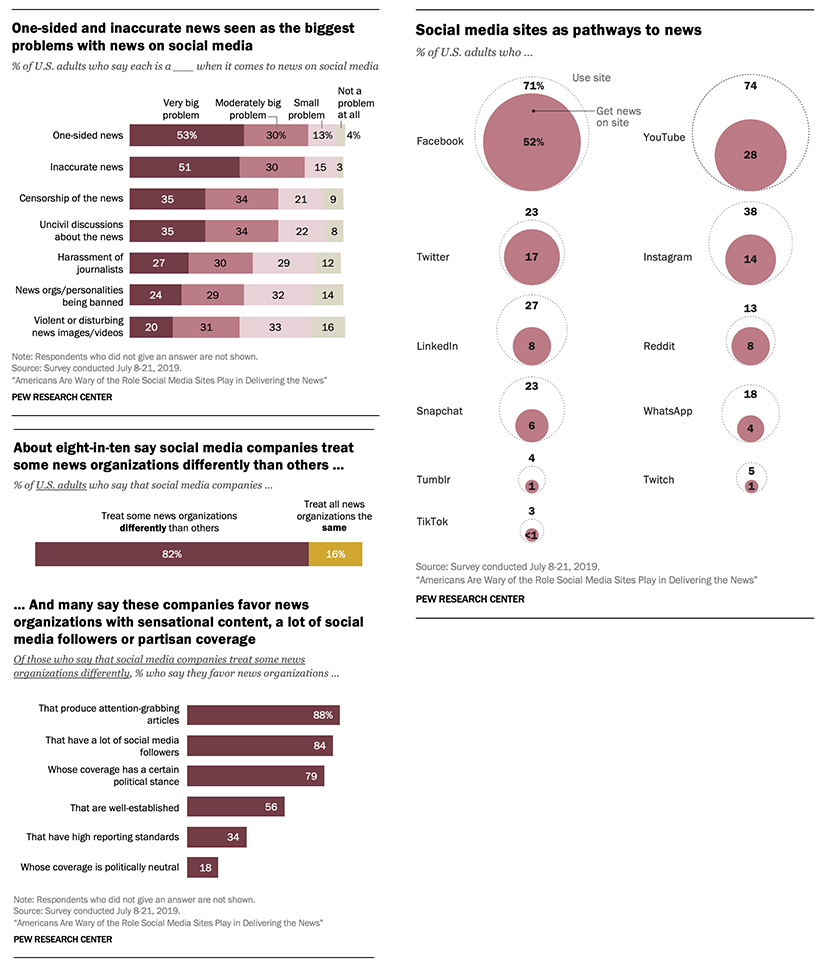We are surrounded by electronic mass media. Television news seems to tell us what we need to care about, advertisements try to tell us what we can’t live without, television programs and films often fill us with fear and violence, social media push endless information — too often misinformation.
Yet through all of this, research tells us that the average American consumes almost 13 hours of electronic mass media each day, according to the market research firm Statista. This column of media exposure can make us feel anxious and inadequate.
 Smith
SmithPope Francis recognized this in his 2019 World Communications Day message: “Today’s media environment is so pervasive as to be indistinguishable from the sphere of everyday life.”
How do we distinguish what is real, meaningful, valid and true in the midst of all this noise?
Some advocate for government regulations, others suggest that media corporations provide a better product. Given the First Amendment and the media’s economic structure, both outcomes are unlikely.
Media literacy encourages citizens to be critical consumers of media. It’s not about hating the media — it’s about recognizing that since we spend so much time consuming media messages, they warrant thoughtful discussion and reflection.
Being a media-literate consumer of messages means we engage in research and reflection on the messages we receive. This can be time consuming, yet thoughtful analyses of messages are necessary in our media-saturated world.
A roadblock to media literacy is the “third person effect,” the claim that people tend to think the media affect others more than it affects themselves.
People struggle to critically analyze media when they have been surrounded by media messages for as long as they can remember; whether they be propaganda, hyperbole or deliberate online misinformation.
Yet the time for media literacy skills is now.
The electronic mass media that exist to make a profit for their shareholders define the world for us. They persuade us which stories are important and which ones aren’t. They tell us what it means to be attractive or successful. They tell us about ourselves and, perhaps more important, they tell us about others.
St. John Paul II suggested the same in his 2005 World Communications Day message when he said, “They teach people how to regard members of other groups and nations, subtly influencing whether they are considered as friends or enemies, allies or potential adversaries.”
Media literacy skills are even more important in an election year, since online misinformation and disinformation can travel at the speed of light.
Although we tend to think that we can identify so-called “fake news” online, the technology of shallow fakes and deep fakes can challenge even the most seasoned media consumer.
We tend to congregate online with those who think, feel, vote and believe the same way we do, so we are less likely to check messages for authenticity if they affirm our already-held beliefs.
Just as we listen for God’s voice to discern His will for us, we must carefully listen to the messages the media tell us to discern their impact on us.
The National Association for Media Literacy Education suggests that we ask questions about the media we consume.
Who is the sender of the message? What is their motive or intent? Who profits from this message? How is the message created? What information is omitted? What lifestyle is presented? How credible is this source?
It’s not hyperbole to suggest that the media affect nearly every aspect of our daily lives.
As thoughtful citizens and Catholics, we must recognize not only how we use the media but how the media use us. We may not be able to outrun these messages, and we can’t outlaw them. But with media literacy skills, we can outsmart them.
Julie Smith is on the faculty at Webster University in St. Louis and is the author of “Master the Media: How Teaching Media Literacy Can Save Our Plugged-In World.” She is a parishioner at St. Catherine Laboure in Sappington.
Media mindfulness for a digital age
Media literacy is our ability to “access, analyze, evaluate, create and participate” in the media we encounter
By Sister Nancy Usselmann, FSP | Catholic News Service
 Sr. Usselmann
Sr. UsselmannAs a media literacy educator, I watch a lot of movies and streaming shows to be able to reflect on theology and popular culture.
Parents, teachers and ministers often share that their biggest concern is to help youth live mindfully in today’s digital media environment.
How can we integrate a reflective, spiritual life with all the media we consume and create?
This requires us to be critical engagers of the culture. It’s a learned practice that takes discipline, something our culture sorely lacks.
Everything moves so fast that we do not take stock of how we are living and why. The deep existential questions that philosophers of old reflected on have fallen by the wayside and replaced with fast-paced communication that necessitates lack of deep reflection.
So, what is a Catholic to do? Practice media literacy that integrates faith — that is, media mindfulness.
That sounds simple, but it takes effort. What is media literacy anyway?
The Center for Media Literacy defines media literacy as the ability to “access, analyze, evaluate, create and participate” in the media we encounter. That is, we stop and reflect on all that we see, hear and feel when we engage with media messages.
It’s important to know how media are created so we know the techniques involved to grab our attention. However, that is only one part of being media literate.
The crucial part is asking questions: Why is this message being sent? What values, ideologies or points of view are being communicated?
For Catholics, the faith perspective means that we bring Gospel values and the example of Jesus into conversation with those messages. This is media mindfulness.
It follows a four-step methodology of theological reflection (listen, reflect, dialogue, act) helping us to go deeper as we ask critical questions of the media experience.
Following the first step of the media mindfulness process, we can examine Destin Daniel Cretton’s movie “Just Mercy.”
1) What is going on? What am I seeing, hearing and feeling?

“Just Mercy” presents a narrative based on the true story of Harvard graduate attorney Bryan Stevenson (Michael B. Jordan) who moves to Alabama to give legal representation to death row inmates, many of whom were often wrongfully convicted. He helps Walter McMillian (Jamie Foxx) to clear his conviction and save him from execution
2) What is really going on? Who pains, who gains?
The film addresses serious issues with regard to racism and how we judge other people who are different from ourselves. It can lead to a discussion on our legal system that convicts people with less-than-substantial evidence.
3) What difference does it make?
This essential step helps us question the values the media artifact communicates to examine if that is in accord with what we believe and what the Church teaches. It has to do with morality, the good and bad of actions, but also with spiritual values and our existential longings.
How does “Just Mercy” reflect how Jesus would treat others and what it means to love our neighbor? Do we really understand this Gospel maxim?
This step helps us examine what our faith values really mean in our everyday lives.
4) What difference can I make? What response seems appropriate in light of my Christian beliefs?
This is the hardest step to concretize. What do I take away from this media experience? Does it challenge me? Does it reveal some social issue that begs my concern? Does it open me up to different points of view? If so, what action will I take as a result?
A takeaway from “Just Mercy” could be that I will examine my prejudices and seek to respect every person I encounter. I could also look into volunteering with organizations that lobby to end the death penalty.
With each step of the media mindfulness method we begin to reflect more deeply and profoundly on our media entertainment. This can be done for streaming shows as well as social media posts.
All media require of us to be critical thinkers and examine well our relationship to the messages they communicate, as well as what we ourselves create. To live our faith in our daily actions means to grow in discernment skills, living each day reflectively and purposefully.
We are called, as Catholics, to live our faith in the here and now, in the concrete and tangible experiences of our lives, and that includes our digital media experience. When we do, we may be surprised by the grace of God that is reflected back to us from the art of popular culture to challenge us to be holy and engaged digital citizens.
Sister Nancy Usselmann is a Daughter of St. Paul and director of the Pauline Center for Media Studies in Los Angeles. She is a media literacy education specialist, theologian, international speaker, writer, film reviewer and blogger for bemediamindful.org and Catholicmom.com. Her book is a theology of popular culture, “A Sacred Look: Becoming Cultural Mystics.”
Pew Survey
A Pew Research Center study in 2019 found that almost nine-in-ten respondents recognize that social media companies have some control over the variety of news people see, and 62% say social media companies have too much control over the mix of news on their sites. The survey was conducted in July 2019 among 5,107 U.S adults who are members of Pew Research Center’s American Trends Panel. Pew also researched Americans’ perceptions of the biggest problems regarding social media and news, the political bias of news posts they see on social media, and which sites they go to for news. Here are some of the findings.The full report of the study can be found at https://pewrsr.ch/3iJJl1i
